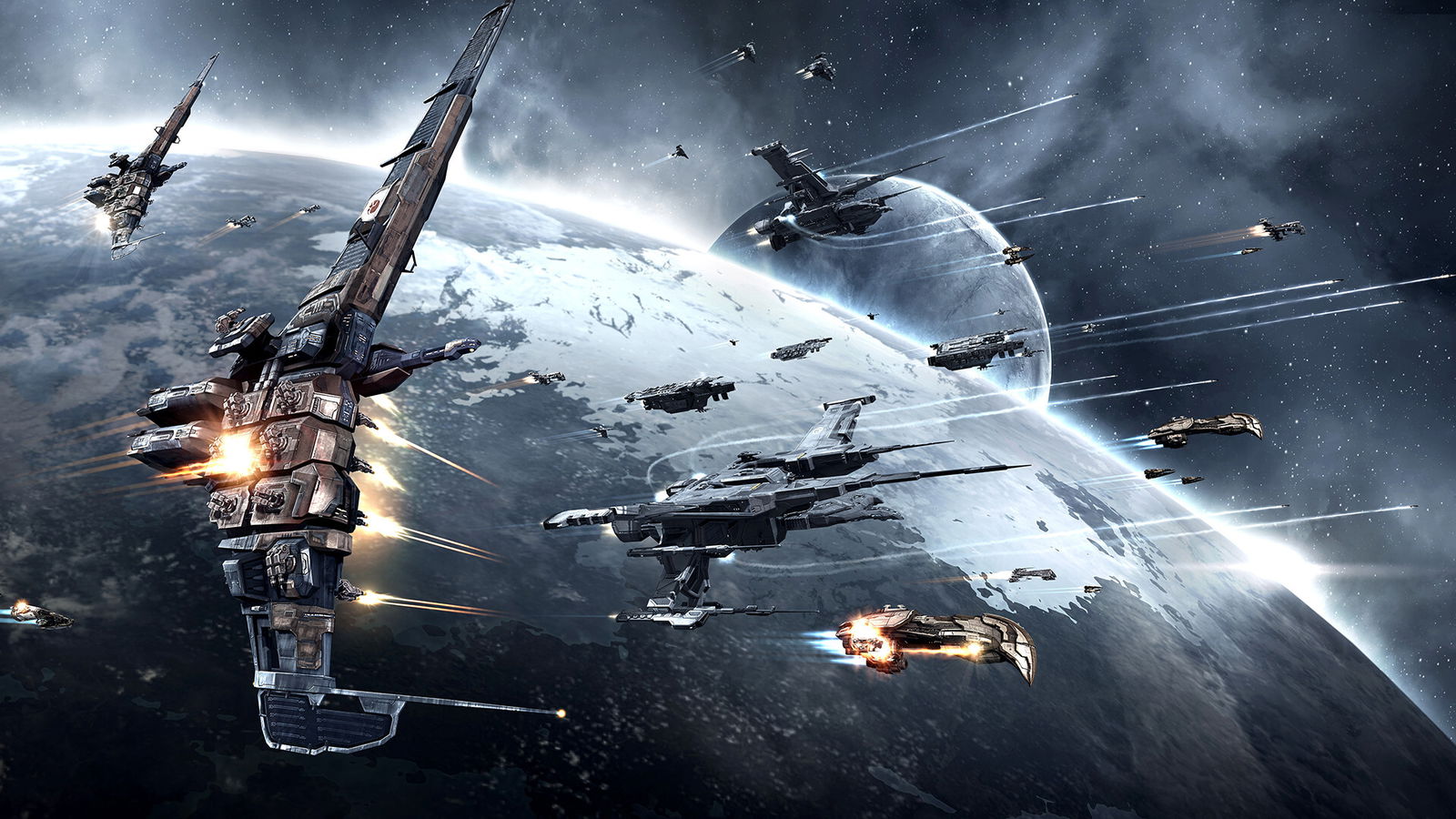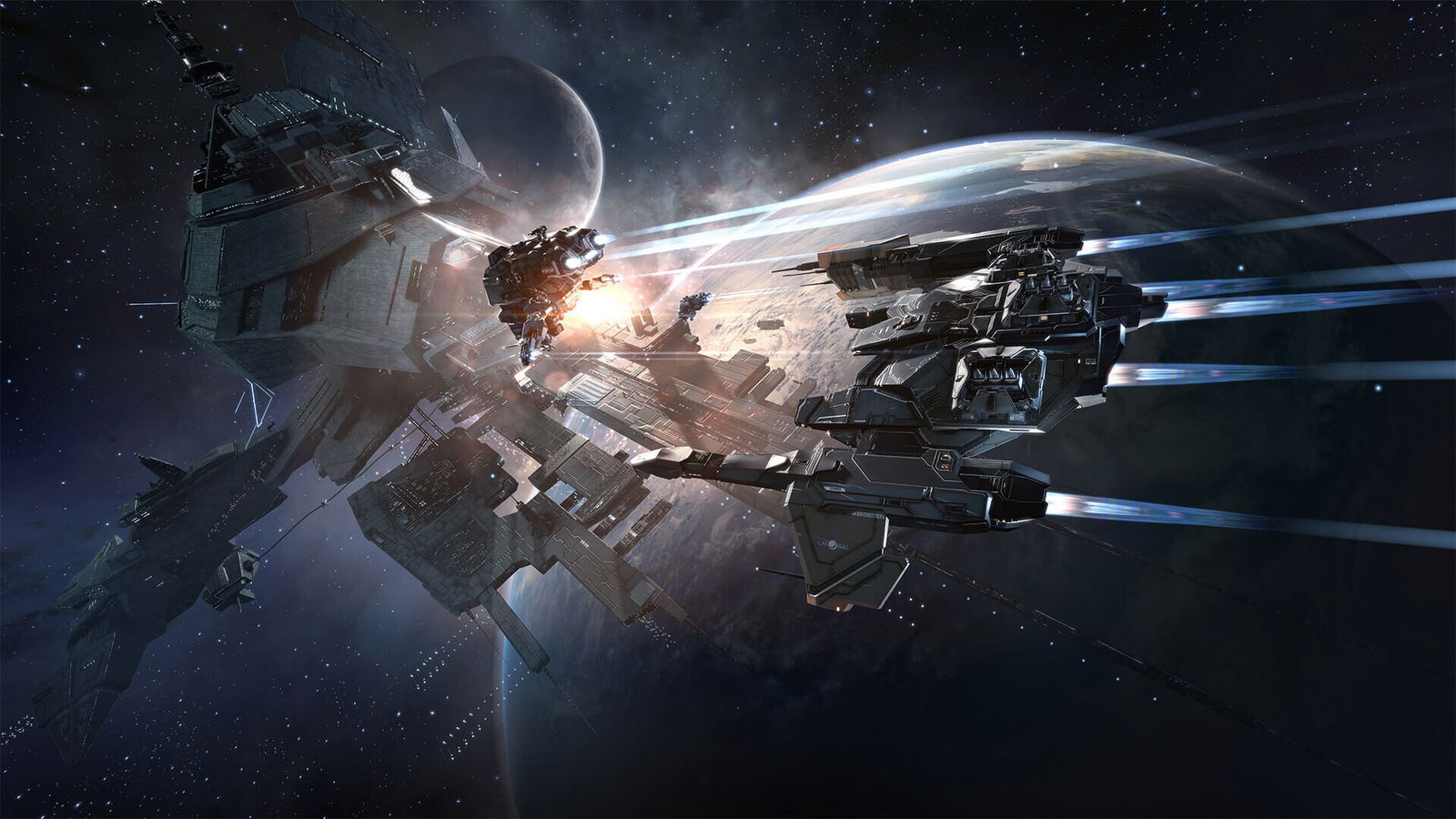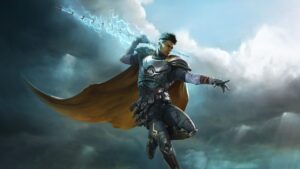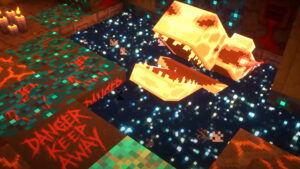As EVE Online celebrates its 21st anniversary, CGMagazine had the opportunity to sit down with the Creative Director at CCP Games, Bergur Finnbogason, to discuss the game’s incredible journey. Launched in 2003, EVE Online has become one of the longest-running MMOs in history, captivating players with its vast, player-driven universe.
Finnbogason, who joined CCP in 2010 and has served as Creative Director since 2018, shared insights into the game’s unique community, the challenges of maintaining a thriving virtual economy, and the team’s vision for the future. With so many people looking forward to each new adventure the game has to offer, there is a lot to manage with any change, let alone world-changing ideas. CCP stands out as a studio with a unique commitment to the space MMO genre, backed by a community passionate about EVE Online.
EVE Online is renowned for its challenging learning curve and intricate systems, yet it has successfully cultivated a devoted player base. These players deeply engage with the game, shaping its evolution through their actions and the Stellar Management Council. They also foster a community that shares a passion for the game’s world. Player engagement is crucial in EVE Online, and developers like Finnbogason are focused on creating tools that promote genuine friendships and unforgettable experiences. As the game enters its third decade, CCP remains dedicated to enhancing its scope while preserving its sandbox roots, ensuring the EVE universe continues to expand and prosper.

How long have you been with EVE Online?
Bergur Finnbogason: So, I joined CCP back in 2010. Initially, I started in Atlanta. We were working on a different game, but I joined the EVE team in 2014, and I’ve been serving as creative director since 2018. Wow, five years, you made me feel old.
Does that mean you have a sword, though?
Bergur Finnbogason: I have a sword and it has a pink hilt. We asked this swordsmith if he had pink handles, and he said, “Yes, I can make pink handles.” Typically, the work is to ease that curve, ease that path into the game, and help players get in and make a meaningful contribution to the greater good of the universe. One of the things that differentiates EVE Online from other games is that because of the sandbox nature, that incredible freedom we give players, it’s way less about having that diamond sword, that purple diamond sword and all the pinks where that you know will beat everyone with.
EVE Online progression is way more horizontal than that. So, you can find your niche very quickly; I mean veteran players that have been playing the game for a very long time. Some of them roll characters and new characters just to do one specific thing, and within minutes, they have a meaningful role in their organization. So, that’s one of the reasons why we have been helping new players to get into player organizations early, because these organizations have the umbrella to do all those important things that we can never do.
We can estimate and think, “Oh, we used to do this or that.” But once you’re in an organization like humans teach humans, computers are okay to a point it’s way easier to learn Chinese if you hang around the Chinese than learning Chinese from your Google translate.

What is keeping your players around for so long? Obviously, we have expansions and things like that, but 21 years is a long time to play a game. What keeps them coming back or never leaving?
Bergur Finnbogason: Funny story, we struggled with this question a lot. For years, we had all these assumptions about the game and around 2016 to 2017, after we went free-to-play, there was a lot of we saw, kind of a lot of downward trends, and we had to look inward, and we had to assess kind of what EVE Online was, and it started with all these fundamental questions that we thought we had answers such as “why do players play EVE Online?” We had to eat our hats big time and make assumptions. EVE Online players know it’s dark, and ruthless, and backstabbing, and everyone murders everyone in the face all the time.
Then we kind of started looking at the data and we saw that 79% of players identify themselves as helpers. They were generally nice people. They collect money for charity through tax-worth goods, they do Project Discovery where they’re curing diseases, they’re doing all these great things, and they’re helping people in real life. All the EVE players that are going through hardship triggered this whole friendship machine research that we kicked off in 2016-2017, where we just dove deep into this idea of friendships because what we found is that most players come for the game, but they stay for the community.
It was truly a moment of realization for me. It was like suddenly thinking, “Huh, they’re just old friends. Interesting—take notes.” CCP Ghost, our wonderful senior strategist, has undergone intriguing training, something akin to what the American Secret Service does when they infiltrate groups. It’s a fascinating story when you hear it from him. Essentially, there’s a formula used in infiltrating criminal organizations that involves building friendships to establish trust and encouraging people to share information with you.
This formula considers several factors: duration, or the amount of time spent together; frequency, how often we meet; proximity, how close we sit; and intensity. These factors multiply together, and you typically need about 200 hours to form good friendships and 2,000 hours to make best friends. But what’s amazing about computer games is that we can adjust these elements at will. Just imagine three of us are sitting here, and suddenly, a massive fire truck crashes through the wall. It’s quite the thought.
There’s a reason why people who experience traumatic events like plane crashes often become very close—this illustrates the power that computer games possess. We have control over these settings, allowing us to quickly ramp up the intensity. For instance, when a new player joins a fleet with an experienced player and subsequently gets killed in action if the veteran explains the reason for the loss, the new player’s retention rate can skyrocket from single digits to 60%-70%.
This is due to the human connection formed during that intense moment, turning a virtual interaction into a genuine friendship. This is particularly significant given that the World Health Organization has identified loneliness as a major epidemic of this century, with entire countries experiencing social isolation. By fostering these friendships, we’re not just creating entertainment; we’re contributing to a meaningful change in the world.

And did you play EVE Online before you got here?
Bergur Finnbogason: Originally, I was an architect, deeply involved in studies focused on architecture and developmental aid. My goal was to help rebuild war-torn areas through humanitarian efforts. However, a close friend of mine was working on a game set in Atlanta and needed help designing cities and buildings. They invited me to join them for a three-month stint, which astonishingly extended into 13 years.
Now, as a game designer, I find that the principles of architecture—concerning human movement, emotions, and interaction—translate beautifully into game development, particularly in sandbox games. These games thrive on human interactions and emotions, similar to the way architecture does, but with a key advantage: in gaming, we have access to immediate data. This data allows us to see the impact of our designs and make adjustments based on direct feedback from players.
In terms of merging game design with story-based expansions, it’s about balancing the narrative we want to tell with the stories the players bring into the game. We design frameworks that allow players to insert their narratives, which interact with and enhance the overarching story.
This collaborative storytelling is not only engaging but also allows us to learn and adapt our designs based on how players experience and influence the game world. I actively share these insights with the design community here in Iceland, discussing changes we’ve made and the outcomes they’ve led to this exchange of stories and strategies that help us refine our approach to game design, making each project a shared journey between us and the players.
As someone who works in game design, how do you blend that with building story-based expansions where you try to tell your own story in tandem with the players bringing their stories into the game?
Bergur Finnbogason: Absolutely, that’s a fantastic question, and I hope we have six hours because there’s both a short answer and a long answer. Indeed, this is one of the challenges we faced. When I arrived in Iceland in 2014, the prevailing attitude was very much that this is a PvP game—it’s player versus player. It’s about me shooting you, you shooting him, and him shooting me.
But what we didn’t realize initially is that PvP is, in many ways, a high-end gameplay aspect. To prepare for PvP, players must engage extensively with player versus environment (PvE) content, such as fighting NPCs. Because of this deep focus on PvP, the narrative and the backstory of the world almost became secondary. Since arriving in Iceland in 2014, we have been actively working to bring the rich backstory of the game to the forefront. Of course, we have the canon—the foundational elements of the world. But the game is so much about the amazing stories of the players, whether that involves massive wars, exploring every system, or personal milestones like falling in love and starting families.
We have two ends of the spectrum: the foundational lore and the player stories. Between these, we work to engage players without breaking the fourth wall or taking away their agency. When writing stories and crafting narratives, we typically have a clear starting point and a somewhat defined end state, but everything in between remains fluid. We observe how the community reacts to these stories, picking up on good theories and sometimes deliberately leading them in unexpected directions.

Essentially, it’s like a dance with the community, where we present puzzles and challenges for them to solve. The endpoint may shift; sometimes events we plan for a specific day happen much sooner or later—usually sooner. It’s a dynamic back-and-forth. I work with the greatest lunatics in the universe, so they’re fine with the unpredictability. “Like, what could possibly go wrong?”
But it’s great, really. It’s scary because it’s a sandbox, so we can only speculate about how players will use the tools we provide. Yet, they always find new and creative ways to weave this madness together and craft their own stories. The process is very much a back-and-forth one. We strive to keep our approach top-light and bottom-heavy, meaning we maintain a lean and small development team while most of the ideas originate from the people on the floor. It’s my job to ensure that I set clear boundaries for them to play within. I define the “backyard” they can play in, and then allow them the freedom to roam within that space.
There are so many announcements for people who don’t eat, sleep and breathe EVE Online. It’s a lot to take in. As someone who’s on the inside, what part of EVE are you most excited for people to learn about or for you to experience personally?
Bergur Finnbogason: First off, I just love being at Fan Fest and meeting the players. It’s a great opportunity to take a step back and see the bigger picture. When you’re working, you often have blinders on, focusing intensely on a problem that seems like the end of the world. But at Fan Fest, you get to see the whole beautiful piece of art that we’ve created. That’s always a highlight for me. Regarding the announcements, I’m incredibly excited about Vanguard. In EVE, you’re not just a ship; you are a capsuleer, and this year, they really blew up the concept. You’re encapsulated in the experience.
Actually, bringing human scale into the equation becomes incredibly powerful, especially when you can align with pirates, creating a three-body problem. If you’re not familiar, the three-body problem is a concept where it’s easy to simulate two bodies orbiting each other, but once you introduce a third, it becomes impossible to predict the outcomes. I love this complexity and unpredictability.
No computer can calculate the dynamics of three bodies orbiting each other—it’s completely insane. I know my peers in the gaming industry think I’m crazy. I’ll probably receive texts at 3:35 AM with people asking, “Why are you doing this? You’re digging yourself a hole you can’t get out of.” And I’m like, yep, that’s exactly what we’re doing.
I am incredibly excited about the release of the Angel Titan. It’s an absolute maverick of a ship and poised to be the ultimate chaos generator. This is particularly thrilling because of what it represents within the game.

What is so special about this to someone who has no idea why this chaos exists?
Bergur Finnbogason: We currently have 386 flyable ships in the game, and there are additional ships that players can’t fly. We’re continually adding to this number. The smallest ships we have are the Corvettes and the shuttles, which measure around 12 meters, or approximately 30 to 35 feet in American terms.
Titans are the largest ships in the game, with lengths ranging from 12km to 16km. These massive vessels are like floating cities, housing hundreds of thousands of individuals, including families and their stories, all of whom face the possibility of perishing if the ship is destroyed.
Then, there’s the Angel Titan, which isn’t just crewed by regular personnel but also includes pirates. This ship is especially formidable—it will be the most powerful and the fastest among the Titans, capable of inflicting incredible damage. Its presence is both menacing and daunting, and naturally, it will be very expensive.
There might be speculation that such ships will never actually exist, but trust me, the moment the game is updated, hundreds of them will go into production. They’ll see action, they’ll be destroyed, and yes, there will be plenty of tears and frustration. But players will keep coming back, driven by the thrill and challenge it adds to the game.

Why did you decide to make the pirate ship and being a pirate one of the main aspects of the main story?
Bergur Finnbogason: It’s chaos, truly. We’re tapping into that age-old fantasy of being a pirate, which appeals to that darker side we all possess—though for some, it might only emerge after a few hurdles. Many players have long harboured the dream of embodying pirates, but we are committed to not doing things by halves. We take our time to ensure everything is done correctly, satisfying both the need and the fantasy.
My promise to the community is to fully realize this pirate fantasy. As for what comes next, who knows? I have plenty of prototypes and ideas, and even though my producers might restrain me at times, telling me no, I’m always ready to stand on the tables, point, and say “yes.”




